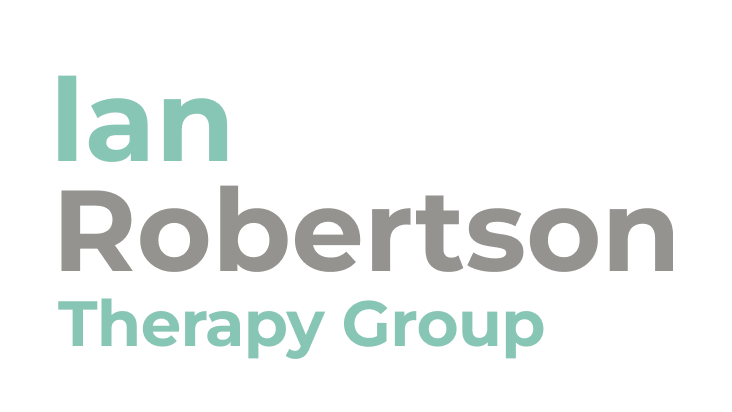
Key Highlights
• Therapy services in Ontario can vary in cost depending on factors such as the type of therapy, therapist’s qualifications, location, session duration, and experience.
• On average, individual therapy sessions in Ontario can range from $100 to $250 per session, private practice fees often being higher than therapy accessed through public or government-funded programs.
• There are funding options available in Ontario to make therapy more affordable, such as government-funded therapy programs, private insurance coverage, and low-cost or free alternatives.
Introduction
If you’re living in Ontario and seeking therapy services, one question you might have is how much it will cost. Understanding the cost of therapy services is an essential step in accessing the mental health support you need without breaking the bank. In this blog, we will discuss the factors that can influence the cost of therapy services in Ontario, the average costs across different therapy modalities, how to make therapy more affordable, the value of investing in mental health, therapy in Ontario: in-person vs. virtual sessions, and navigating insurance coverage for therapy. We will also address frequently asked questions about therapy costs in Ontario. So, let’s dive in and shed some light on understanding therapy costs in Ontario.
The Current Landscape of Therapy Costs in Ontario
The cost of therapy services in Ontario can vary depending on several factors. Factors such as the type of therapy, therapist’s fees, session duration, and location can all influence the cost. Private practice fees are often higher compared to therapy services accessed through public or government-funded programs. In Ontario, therapy services are provided by registered psychotherapists, psychologists, and social workers. These professionals have different qualifications, experience, and associated costs. Now we will discuss the factors that contribute to Ontario’s Rising therapy cost and also the average cost you can expect to see across a variety of modalities.
Factors Affecting the Price of Therapy In Canada
Several factors can affect the price of therapy services in Ontario:
1. The type of therapy you choose can impact the cost.
2. Different therapists may have different fees based on their qualifications and experience.
3. The location of the therapist’s practice can also affect the cost, with therapists in urban areas or prime locations often charging higher fees.
4. The session duration is another factor to consider, as longer sessions may incur higher fees.
5. Additionally, the therapist’s fees and experience, as well as the type of therapy approach used, can contribute to the overall cost.
It’s important to discuss these factors with your therapist and consider them when budgeting for therapy services. Ultimately, the cost of therapy can vary depending on a variety of factors, and it’s important to find a therapist who meets your needs and fits within your budget. If you ever have any questions you can always reach out to our team at Ian Robertson Therapy Group & we will do our best to help you on your journey of self-growth.
Average Therapy Costs Across Different Modalities
The average cost of therapy in Ontario can vary depending on the therapy modality. Individual therapy sessions, which involve one-on-one sessions with a therapist, can range from $100 to $250 per session. Group therapy sessions, where individuals participate in therapy with a group of people, may have different pricing structures and can be more cost-effective compared to individual therapy. It’s important to note that these are general estimates and actual costs can differ based on various factors such as the therapist’s qualifications and experience, the location of the therapy practice, and the type of therapy approach used. In urban areas, therapy costs may be higher compared to suburban or rural areas. Here is a text table summarizing the average cost of different therapy modalities in Ontario:
| Therapy Modality | Average Cost per 1 hr Session in Ontario |
| Individual Therapy | $100 – $250 |
| Couples Therapy | $175 – $450 |
| Group Therapy | Varies depending on the program and number of sessions |
Tips For Making Your Therapy Affordable
Making therapy affordable is a priority for many individuals seeking mental health support. There are several ways to make therapy more affordable in Ontario. Some therapists offer sliding scale fees based on income, which means that the cost of therapy is adjusted based on your financial situation. Additionally, there are government-funded therapy programs and private insurance coverage options that can help offset the cost of therapy. It’s also worth exploring if therapy expenses can be claimed as a tax deduction on your personal income tax return. By exploring these options, you can find affordable therapy options that fit within your budget.
Budgeting for Therapy Sessions
Budgeting for therapy sessions is an important step in ensuring that you can prioritize your mental health without financial strain. Here are some tips to help you budget for therapy sessions:
1. Evaluate your finances: Take a close look at your monthly income and expenses to determine how much you can allocate towards therapy sessions. Consider adjusting your budget to prioritize therapy as an investment in your mental health.
2. Research therapists: Take the time to research therapists and compare their fees. Look for therapists who offer sliding scale fees based on income or provide discounts for students or individuals with financial constraints.
3. Utilize public or government-funded programs: If cost is a significant concern, explore government-funded therapy programs and community mental health agencies. These programs often provide reduced-cost or no-cost therapy services based on income eligibility.
4. Review your insurance coverage: Understand your insurance policy and the coverage it provides for therapy services. If you have insurance, utilize it to offset the cost of therapy. Review any restrictions or limitations that may apply.
By incorporating these tips into your budgeting process, you can ensure that therapy services are financially feasible for you. Remember, investing in your mental health is an important step towards personal growth and overall well-being.
Exploring Sliding Scale Fees and Therapy Options
To make therapy more accessible and affordable, many therapists offer sliding scale fees based on income. This means that the cost of therapy is adjusted based on an individual’s financial situation, making it more affordable for those with lower incomes. Here are some key points to consider when exploring sliding scale fees and affordable therapy options in Ontario:
• Sliding scale fees: Some therapists offer sliding scale fees based on income, making therapy more affordable for individuals with lower incomes.
• Registered social worker: Registered social workers often provide therapy services at lower costs compared to other mental health professionals.
• Community mental health agencies: These organizations may offer sliding scale fees or reduced-cost therapy options for individuals in need of mental health services.
• Government-funded programs: Explore government-funded therapy programs that provide mental health services at reduced or no cost based on income eligibility.
By exploring these options, individuals can access therapy services at more affordable rates and receive the support they need for their mental health.
The Value of Investing in Mental Health

Investing in mental health through therapy is a valuable decision that can have long-term benefits and improve overall quality of life. While therapy may come with a cost, the benefits of improved mental health and personal growth are immeasurable. Mental health concerns can affect various aspects of life, including relationships, work, and overall well-being. By prioritizing mental health and investing in therapy, individuals can develop coping strategies, gain insights into their thoughts and emotions, and build resilience. Therapy provides a safe and confidential space to explore personal concerns and supports individuals in their journey towards personal growth and a better quality of life.
Long-term Benefits of Therapy
Therapy offers long-term benefits that go beyond the immediate sessions. Here are some key long-term benefits individuals can experience through therapy:
• Improved quality of life: Therapy can help individuals develop healthier coping mechanisms, enhance self-awareness, and improve overall well-being, leading to a better quality of life.
• Personal growth: Through therapy, individuals can gain insights into their thoughts, emotions, and behaviors, leading to personal growth and self-improvement.
• Specific needs addressed: Therapy provides a tailored approach to address individual needs, whether it’s managing mental health conditions, navigating life transitions, or improving relationships.
• Enhanced self-esteem: Therapy can help individuals develop a positive self-image, build self-confidence, and improve self-esteem.
• Resilience building: Therapy equips individuals with the skills and tools to navigate challenges, manage stress, and build resilience, which can be beneficial in various areas of life.
By investing in therapy and embracing the long-term benefits, individuals can experience positive changes that enhance their overall well-being and quality of life.
Comparing the Costs and Benefits
When considering therapy, it’s important to compare the costs and benefits to make an informed decision. While therapy may involve a financial investment, the benefits of improved mental health and well-being outweigh the costs. Here are some key points to consider when comparing the costs and benefits of therapy:
• Cost of therapy: Therapy fees can vary depending on factors such as the type of therapy, therapist qualifications, and location.
• Higher fees for specialized services: Specialized therapies or therapists with more experience may charge higher fees.
• Benefits of therapy: Therapy offers a safe and confidential space to explore personal concerns, develop coping strategies, and improve overall mental health.
• Long-term impact: Therapy can lead to personal growth, improved relationships, enhanced self-esteem, and resilience building.
• Prioritizing mental health: Investing in therapy is an investment in oneself and prioritizing mental health.
By considering the costs and benefits, individuals can make an informed decision about investing in therapy and prioritize their mental well-being.
Therapy in Ontario: In-Person vs. Virtual Sessions

When considering therapy in Ontario, individuals have the option to choose between in-person therapy and virtual sessions. Here are some key factors to consider when comparing the two options:
• Cost comparison: In-person therapy sessions may have higher fees compared to virtual sessions.
• Accessibility: Virtual sessions offer convenience and accessibility, eliminating the need for travel and providing flexibility in scheduling.
• Type of therapy: Some individuals may prefer in-person therapy for a more personal connection, while others may find virtual sessions equally effective.
• Insurance coverage: It’s important to check insurance coverage for both in-person and virtual therapy sessions, as coverage may vary.
Ultimately, the choice between in-person and virtual therapy depends on individual preferences, cost comparison, and accessibility. It’s important to choose the format that best suits personal needs and can provide the necessary support for mental health.
Cost Comparison and Accessibility
When comparing the cost of in-person therapy and virtual sessions, there are several factors to consider. In-person therapy sessions may have higher fees due to the costs associated with renting office space and utilities. On the other hand, virtual therapy sessions may offer more affordable options as there are no additional overhead costs.
In terms of accessibility, virtual therapy sessions provide convenience and flexibility. Individuals can access therapy from the comfort of their own homes, eliminating the need for travel. This is particularly beneficial for individuals in remote areas or those with limited mobility.
It’s important to check insurance coverage for both in-person and virtual therapy sessions, as coverage may vary. Some insurance plans may cover both formats, while others may have specific coverage for either in-person or virtual sessions.
It’s recommended to consider personal preferences, cost comparison, and accessibility when choosing between in-person therapy and virtual sessions. By weighing these factors, individuals can make an informed decision that best suits their needs and financial situation.
How to Choose the Right Format for You
Choosing the right format for therapy sessions depends on individual needs and preferences. Here are some factors to consider when making a decision:
• Specific needs: Consider the nature of the concerns you want to address in therapy and choose the format that aligns with those needs. Some individuals may prefer the personal connection of in-person therapy, while others may find virtual sessions equally effective.
• Session duration: Consider the duration of therapy sessions and choose the format that fits your schedule and availability.
• Registered therapist: Ensure that the therapist you choose is registered and qualified to provide therapy in the chosen format.
• Personal growth: Reflect on how each format may facilitate personal growth and progress towards your therapy goals.
To make the best choice, engage in an open dialogue with your therapist about your preferences, concerns, and objectives. At Ian Robertson Therapy Group, we are dedicated to ensuring that the therapy format you choose is the best fit for your needs. Both in-person and virtual therapy can effectively support your journey towards personal growth. If you have any questions or need further assistance in deciding, don’t hesitate to reach out to us or visit our pricing page on the Ian Robertson Therapy Group website for more details. This way, you can make an informed decision that truly aligns with your personal therapy goals and lifestyle.
Navigating Insurance and Therapy
Navigating insurance coverage for therapy in Ontario involves understanding the options available and the specific coverage provided by insurance plans. Here are some key points to consider:
• Health insurance: Many health insurance plans provide coverage for mental health services, including therapy. It’s important to review your insurance policy to understand the coverage and any limitations or requirements.
• Insurance provider: Different insurance providers may offer varying coverage for therapy services. It’s recommended to contact your insurance provider directly to discuss the coverage details.
• OHIP coverage: The Ontario Health Insurance Plan (OHIP) covers therapy services provided by psychiatrists but does not cover psychologists or other mental health professionals.
• Registered therapist: Check with your insurance company to understand if the designation of the therapist (i.e., Registered Social Worker/Registered Psychotherapist) is covered within your plan.
By understanding insurance coverage options and discussing them with your insurance provider, you can navigate the process of using insurance for therapy services effectively.
Understanding OHIP Coverage for Therapy
The Ontario Health Insurance Plan (OHIP) covers therapy services provided by psychiatrists but does not cover psychologists or other mental health professionals. It’s important to understand the specific coverage provided by OHIP for therapy services. Here are some key points to consider:
• Coverage for psychiatrists: OHIP covers therapy services provided by psychiatrists, which includes assessment, diagnosis, and treatment of mental health conditions.
• Registered Psychotherapist: OHIP does not currently cover therapy services provided by Registered Psychotherapists. However, some private insurance plans may provide coverage for therapy services provided by Registered Psychotherapists.
• Registered Social Worker: OHIP does not cover therapy services provided by Registered Social Workers. However, some private insurance plans may provide coverage for therapy services provided by Registered Social Workers.
It’s important to check with your insurance provider for coverage details and to explore other funding options if OHIP coverage is not available for your therapy needs.
Is Therapy Covered by Extended Health Insurance in Ontario?
Extended health insurance plans can provide coverage for therapy services in Ontario. The extent of coverage depends on the insurance company and the specific plan you have. Here are some important points to consider:
• Coverage for mental health services: Many extended health insurance plans include coverage for mental health services, including therapy. It’s important to review your insurance policy to understand the specific coverage details, including any limitations or requirements.
• Insurance company: Different insurance companies may offer varying coverage for therapy services. It’s recommended to contact your insurance company directly to discuss the coverage details and inquire about the therapists and therapy modalities covered.
• Registered therapist: Insurance coverage may depend on the designation of the therapist, such as Registered Social Worker/Registered Psychotherapist. It’s important to check with your insurance company to understand if therapy services provided by registered therapists are covered within your plan.
By understanding the coverage provided by your extended health insurance plan and discussing it with your insurance company, you can navigate the process of using insurance for therapy services effectively.
Conclusion
Investing in your mental health is invaluable. Therapy costs in Ontario may vary, but the long-term benefits far outweigh the expenses. By understanding therapy costs and exploring affordable options, you prioritize your well-being. Whether opting for in-person or virtual sessions, therapy provides a safe space to navigate life’s challenges. Remember, your mental health is worth every effort, and seeking help is a sign of strength. Take the step towards a healthier mindset today. Your well-being is a priority; make it a priority.
Frequently Asked Questions
What is the average cost of therapy in Niagara Falls?
The average cost of therapy in Niagara Falls varies depending on the type of therapy and the therapist’s qualifications. Generally, you can expect the following ranges:
• Individual Therapy: $100 to $250 per session.
• Couples Therapy: $175 to $450 per session.
• Group Therapy: Costs vary based on the program and number of sessions.
It’s advisable to inquire directly with therapists for precise pricing and to consider any additional costs like the Harmonized Sales Tax (HST) when budgeting for therapy session
Can therapy expenses be covered under Canadian health plans?
Yes, therapy expenses can be covered under Canadian health plans. Many extended health insurance plans provide coverage for therapy services. However, coverage may vary depending on the specific plan and insurance company. It’s important to review your insurance policy or contact your insurance provider to understand the coverage provided for therapy expenses.
How often should I attend therapy sessions to get the best value?
The frequency of therapy sessions depends on individual needs and goals. In general, attending therapy sessions on a regular basis, such as weekly or biweekly, allows for consistent progress and supports the therapeutic process. It’s recommended to discuss the frequency of sessions with your therapist, as the optimal frequency may vary depending on the individual and the nature of the concerns being addressed. The first session is typically an initial assessment and may involve discussing treatment goals and session frequency.
Are there any low-cost therapy services in Ontario for students or unemployed individuals?
Yes, there are low-cost therapy services available in Ontario for students or unemployed individuals. Community mental health agencies and nonprofit organizations may offer reduced-cost or free therapy services based on income eligibility. It’s recommended to reach out to these organizations and inquire about their programs and fees. Additionally, some universities have psychology clinics that offer therapy services at a reduced cost, and private practices may offer affordable therapy programs run by master’s interns finishing up their practicum placements.











